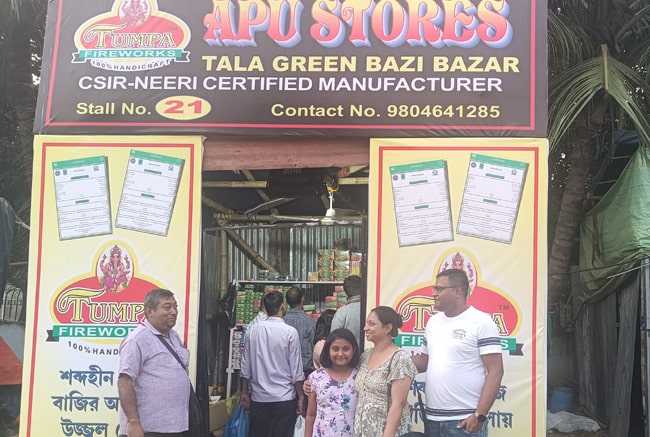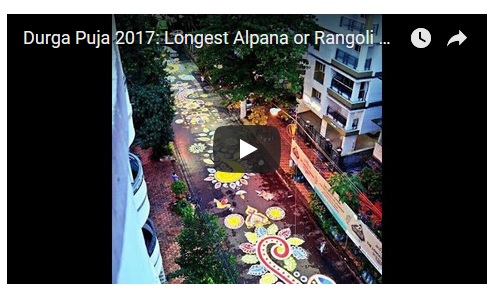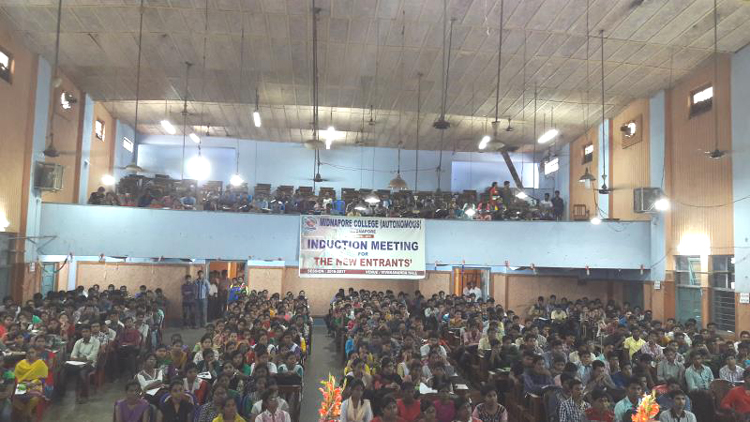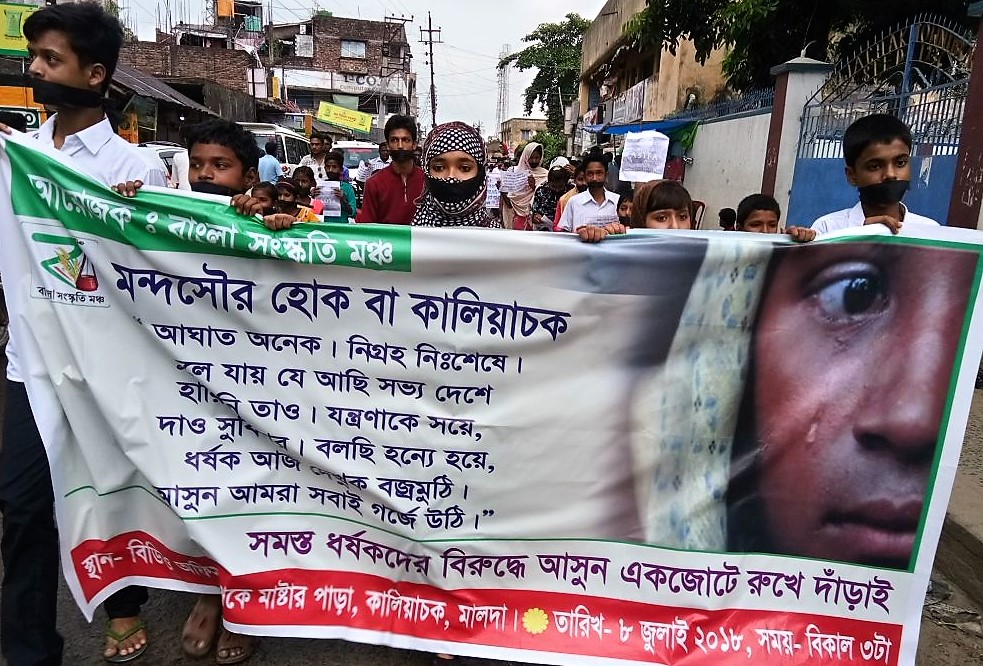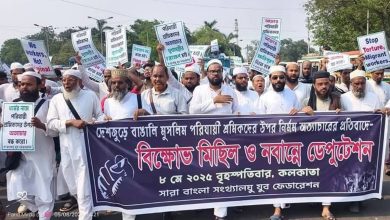Shah thunders against Mamata’s Parivarbad but inducts babalogs and tainted turncoats of TMC
BJP triggers defection from TMC, recruits tainted leaders in poll-bound Bengal
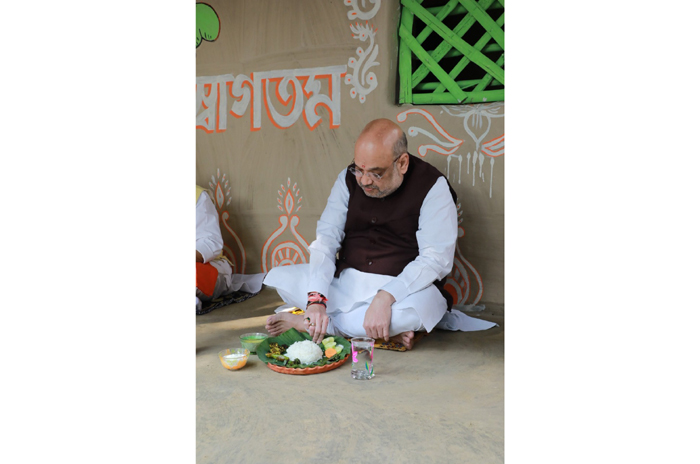
Midnapore/Kolkata: Union home minister and BJP number two Amit Shah, today bagged ten Bengal MLAs in his kitty, seven from Mamata Banerjee’s TMC and two from the Lefts as well as one from the Congress. A TMC MP has also changed the side. Mamata suffered the biggest jolt ahead of assembly polls in the state as her former cabinet minister and influential young leader, Suvendu Adhikari was the key catch for Shah in his bid to oust Bengal’s big sis from power.
Clash of political ambition with Mamata’s nephew Abhisek, her de facto heir apparent and a TMC MP as well as misgivings against the ‘high-handedness’ of the party’s hired poll manager Prashant Kishor who was once Narendra Modi and Nitish Kumar’s poll strategist apparently triggered these defections. Shah and Suvendu thundered against the Parivarbad or Bua-Bhatija Raj of Bengali variety at BJP rally in Midnapore on Saturday.
But the irony of double standards remains unmistakable. ‘The party with a difference’ has no qualms in welcoming Adhikari whose father as well as brothers are either TMC MPs or MLA. The family even manages local municipalities East Midnapore district, a decade-long fiefdom. Earlier, Shah-led BJP had inducted Mamata’s former second in command, Mukul Roy and former Kolkata mayor, Shovon Chatterjee, despite both being targeted under Narada-Sarada scam by the CBI and ED. More defections are likely to follow from the TMC as the BJP is are dangling both carrots and sticks to Mamata’s men who are facing corruption and other charges.
Left-Congress combine, now reduced to a distant third position at the hustings, are gleeful over Mamata’s discomfiture reminding that she had done the same kind of ruthless poaching into their ranks earlier. But many in Bengal’s left-liberal civil society and minority community members feel that all these traditional rivals are only paving ways for their own doom by making room for Shah, the reigning master of defections and horse-trading in Indian politics.
Busy in defending their own stables from Shah and his men, neither TMC nor other anti-BJP parties have undertaken the rural campaigns against the new farm laws despite announcing such moves. This has helped BJP to harvest the fruits of its powerful propaganda.
Shanti Dutta Majhi, a farmer said that he has heard that the bill is not against the farmers and it is just being hyped by the opposition. “People are saying that the bill is perfect and the opposition is making ruckus over it for political gains. The farmers of Haryana are rich in comparison to what we are. They are just staging drama. All I know and see is the PM Modi is with us”.
BJP is also playing up the anti-incumbency sentiments over the denial of benefits under government schemes to supporters of rival parties even rival factions of the ruling party, a long time menace in Bengal.
I am told that the BJP government has started giving subsidies of 6000 rupees to farmers. But due to Mamata Banerjee we are not receiving them,” stated Majhi.
Recalling the days when he used to spend nights under a tarpaulin with his family, Gobindo Purohit said that he now hopes to get a permanent roof under Pradhan Mantri Abhash Yojana.
“The TMC Supremo before coming to power promised several things but was of no avail, ” said Purohit. He alleged that the middlemen of the TMC demanded ‘cut money’ to get their problems solved and even to reach the right quarter money was charged.
However, Kolpona, an aged lady claimed that she was given money and food to attend the rally with her family and relatives.
“I come from a very poor family. Getting two meals and a few hundred for coming and attending the rally is a good deal,” said Kolpona. She was ,however, cynical about Shah’s comment that the ‘BJP will build Shonar Bangla’, “No government does good for anyone. I am hearing these fake promises since childhood.
A family member of Kolpona, (who refused to name) thinks that the poaching before the election is common.“If the BJP thinks TMC is bad, why are they inducting their leaders? We are just played upon and after election Bangla will be as it is,” said the relative of Kolpona.


